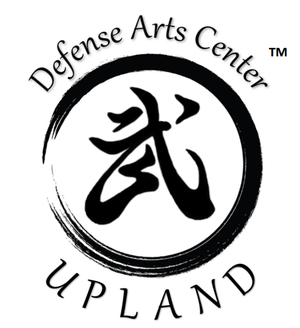Training in the martial arts, to me, symbolizes the efforts to seek the perfection of character. The perfection of character cannot, in reality, be obtained by mere mortals. The journey to improve one’s character is a lifelong endeavor, a never ending commitment to improve oneself. Karate training is the same. The most one can accomplish is continual progress in improving one’s character. My karate training also features my efforts to continually improve my skills, knowing I will never reach a skill level where improvement is not necessary, regardless of my dojo rank. However, the obstacles encountered in the dojo, train the karate-ka how to overcome the obstacles encountered outside of the dojo. Important skills such as discipline, humility, and determination, are directly applicable in life. I try to live my life outside the dojo as a black belt, applying the lessons learned in the dojo to my own struggles. So, just like I must continually strive to improve my karate skills in the dojo, I continually strive to improve my character.
Earning a black belt, brings with it, an expectation of a certain performance level, physically and mentally. Karate training consistently features training to not give up when it would be easy, maybe even understandable, to do so. I find this aspect karate training invigorating. We often find ourselves training to a state of exhaustion that requires the mental fortitude to just keep performing regardless of physical state. At that moment in time, the true discipline of a black belt level student should be evident. When I am reaching that point in training, I see the opportunity to prove the mettle of a black belt. I often feel that this is the only way to show I am worthy of a black belt, as I believe my physical limitations make it challenging for me to show the physical skill level worthy of a black belt. In this regard, I wield my determination and spirit as a weapon, in addition to the weapons of my empty hands. Despite my physical limitations, I can prove the discipline and mental toughness worthy of the black belt rank. I also believe achieving the black belt rank includes a sense of quiet confidence, and humility. It is almost as if the karate-ka, in achieving the black belt rank, also achieves a mindset of not needing to seek the stature or validation that the rank of black belt brings with it.
Meditation before and after class is an important part of karate training. Meditation is a time to focus one’s awareness in preparation for karate, or preparing for one’s life outside the dojo. I meditate as a way of entering a different state of awareness, not an altered state, but a different viewpoint to plan and observe my own actions. Meditation is a time to view one’s possible actions, and choose a path or make commitments to achieve one’s goals. Meditation allows the time for one to focus on meeting the challenges that lie ahead. I use the meditation as a way of separating my karate training from the demand I may be facing in life. Time spent in the dojo seems to be separate from time spent outside of the dojo. Concerns in the outside world do not penetrate into the dojo. Likewise, the challenges of training in the dojo do not manifest themselves outside of the dojo. The time spent away from ones struggles is refreshing and renews one’s spirit. This promotes a demeanor of calmness. Indeed, calmness and stoic confidence seem to go hand in hand with karate training. Karate masters of past and present generations seem to be known not only for their skills and abilities, but also their calmness, and perhaps, insightful nature. Meditation honors the traditions of karate in developing this calmness, and insightful nature.
I think respect for tradition is very important to the study of karate, and is unavoidable in the study of karate. In many aspects, the study of karate is a passing down of the history of karate. The teachings of old karate masters have been passed down to generations of karate students, keeping the traditions alive. Modern technology may, more recently, aid in passing on some of these teachings, but cannot capture the full depth and spirit of the masters. I believe the karate we study is a type of living art, and in the study of this art, we help keep it alive. As this living art changes throughout the years, new students are able to contribute to the continuum of this evolving art. As karate changes and adapts to new demands of modern societies, it ensures its relevance and utility.
Thank you for the opportunity to express my some of my beliefs regarding my study of karate.
Christopher Becker
December 2013

